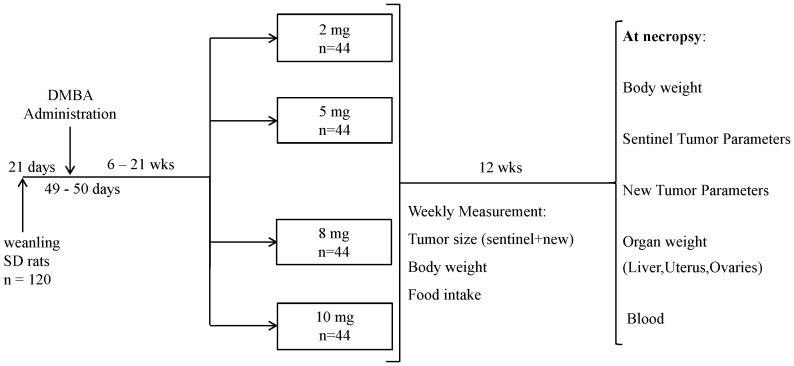Figure 1. Study Design.
Weanling female rats were placed on a control diet containing 2/kg diet (basal dietary requirement for rats) until 7 weeks of age when the mammary carcinogen DMBA was administered. The animals continued to receive the control diet until a single mammary tumor between 0.7–0.9 cm (i.e., the sentinel tumor) developed. The animals were then randomized to receive different levels of folic acid (control, 5, 8, and 10 mg folic acid/kg diet) for 12 weeks. At necropsy, all macroscopic mammary tumors (sentinel and new) were harvested and histologically confirmed as adenomas or adenocarcinomas. The primary objective of this study was to determine the effect of folic acid supplementation on the progression of the sentinel mammary tumors and on the sentinel tumor burden variables (weight, volume, and area). The secondary objective of this study was to determine the effect of folic acid supplementation on the incidence and tumor burden variables of all mammary tumors including the sentinel and new mammary tumors at necropsy.

